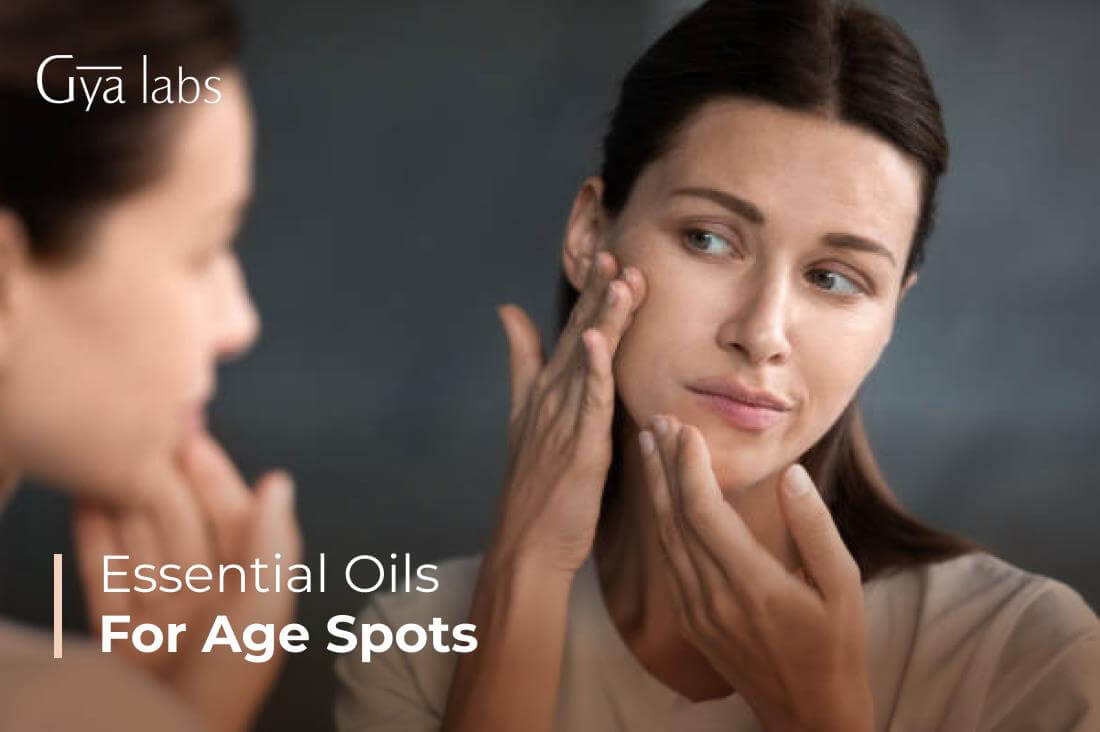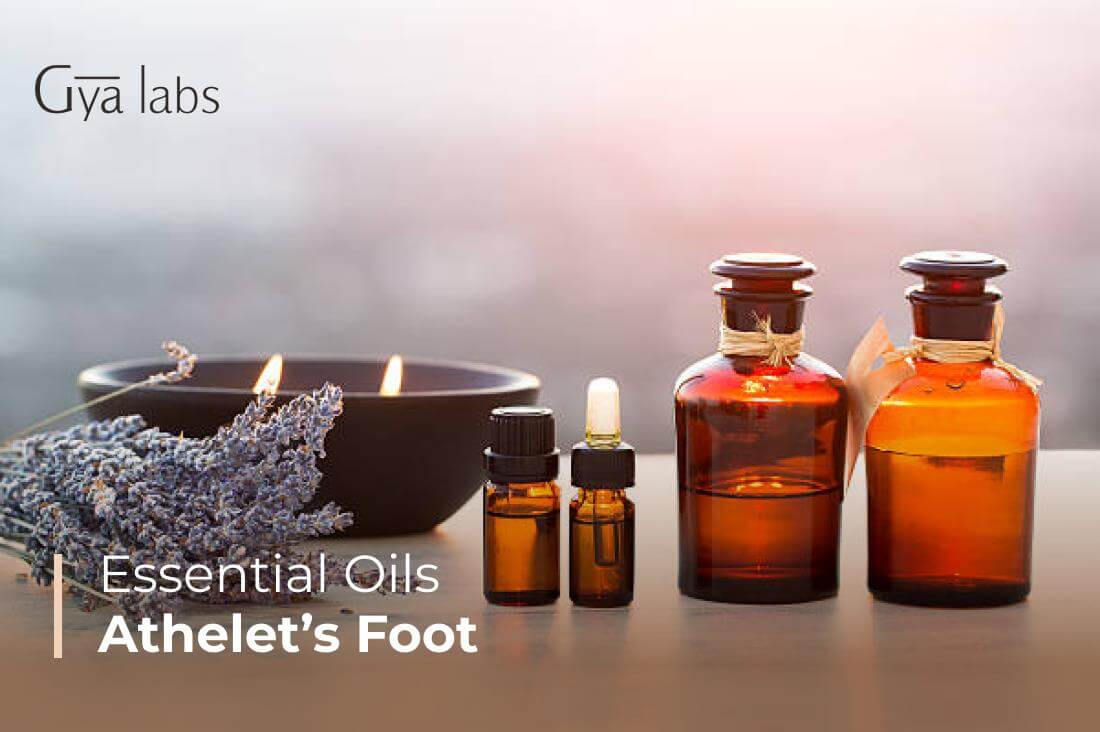Overview
In today's fast-paced world, maintaining clean and fresh air indoors is paramount for our health and well-being. The air we breathe can be laden with pollutants, allergens, and other harmful particles, which can have adverse effects on our respiratory system and overall health. Fortunately, nature provides us with a potent solution in the form of essential oils. These concentrated plant extracts not only offer captivating scents but also possess remarkable properties for air purification.
Essential oils are volatile compounds extracted from various parts of plants, including leaves, flowers, stems, and roots. They are renowned for their aromatic qualities and therapeutic benefits. What sets essential oils apart is their ability to purify the air by neutralizing odors, eliminating airborne pathogens, and promoting a sense of freshness.
In this article, we are going to discuss some of the best essential oils that can be used to purify air. Also, we will discuss in detail the benefits of essential oils, how to use them and some DIY blends and recipes to use these oils for improving indoor air quality.
Best Essential Oils To Purify Air
1. Lemon Essential Oil
Lemon essential oil stands out as a powerhouse when it comes to air purification. Its vibrant citrus scent not only uplifts the mood but also serves as a natural disinfectant, effectively eliminating airborne pathogens. This makes it an ideal choice for purifying indoor spaces and combating odors.
Extracted from the rind of lemons (Citrus limon), this essential oil contains compounds like limonene and citral, known for their antimicrobial properties. When diffused into the air, lemon essential oil not only neutralizes odors but also helps to create a fresh and invigorating atmosphere.
2. Lavender Essential Oil
The calming aroma of lavender essential oil not only promotes relaxation but also possesses impressive antimicrobial properties, making it an excellent choice for air purification. Derived from the flowers of lavender (Lavandula angustifolia), this essential oil is known to combat airborne pathogens effectively, thereby improving indoor air quality.
Beyond its air-purifying capabilities, lavender essential oil is renowned for its soothing effects on the mind and body. Diffusing lavender oil in your living space can create a serene ambiance conducive to relaxation and stress relief.
3. Eucalyptus Essential Oil
Eucalyptus essential oil is a go-to remedy for respiratory issues and air purification. Extracted from the leaves of eucalyptus trees (Eucalyptus globulus), this oil contains cineole, a compound known for its decongestant properties. When diffused into the air, eucalyptus essential oil clears the sinuses, relieves congestion, and promotes easier breathing.
In addition to its respiratory benefits, eucalyptus oil serves as a natural disinfectant, effectively eliminating airborne bacteria and viruses. Its invigorating scent adds a refreshing touch to any space while purifying the air.
4. Tea Tree Essential Oil
This is one of the best essential oils to use for air purification. Tea tree essential oil is revered for its potent antimicrobial properties, making it a powerful ally in air purification. Derived from the leaves of the tea tree (Melaleuca alternifolia), this oil contains terpinen-4-ol, a compound known for its antimicrobial and antifungal effects.
When diffused into the air, tea tree oil helps to neutralize odors and eliminate airborne pathogens, creating a clean and fresh environment. Its purifying properties make it particularly useful for combating mold, mildew, and other common indoor pollutants.
5. Peppermint Essential Oil
Peppermint essential oil offers a refreshing and invigorating aroma along with potent antimicrobial properties, making it a valuable addition to any air purification regimen. Derived from the leaves of the peppermint plant (Mentha × piperita), this oil contains menthol, a compound known for its antimicrobial and decongestant effects.
When diffused into the air, peppermint oil helps to clear the sinuses, alleviate respiratory issues, and promote easier breathing. Its crisp, minty scent uplifts the mood and creates a revitalizing atmosphere, perfect for purifying indoor spaces.
6. Rosemary Essential Oil
Rosemary essential oil boasts a fresh, herbaceous aroma and impressive antimicrobial properties, making it an excellent choice for air purification. Extracted from the leaves of the rosemary plant (Rosmarinus officinalis), this oil contains cineole and camphor, compounds known for their antibacterial and antifungal effects.
When diffused into the air, rosemary oil helps to neutralize odors, eliminate airborne pathogens, and create a clean and fresh environment. Its invigorating scent promotes mental clarity, concentration, and overall well-being.
7. Thyme Essential Oil
Thyme essential oil is prized for its potent antimicrobial properties, making it a valuable asset in air purification. Derived from the leaves and flowers of the thyme plant (Thymus vulgaris), this oil contains thymol, a compound renowned for its antibacterial and antifungal effects.
When diffused into the air, thyme oil helps to neutralize odors, eliminate airborne pathogens, and promote a fresh and clean air. Its herbaceous aroma adds a pleasant touch to any space while enhancing indoor air quality.
8. Lemongrass Essential Oil
Lemongrass essential oil offers a bright, citrusy aroma and impressive antimicrobial properties, making it an excellent choice for air purification. Extracted from the leaves and stems of lemongrass (Cymbopogon citratus), this oil contains citral, a compound known for its antibacterial and antifungal effects.
When diffused into the air, lemongrass oil helps to neutralize odors, repel insects, and create a clean and refreshing environment. Its uplifting scent promotes energy, vitality, and mental clarity, making it a popular choice for purifying indoor spaces.
9. Cedarwood Essential Oil
Cedarwood essential oil exudes a warm, woody aroma and possesses impressive antimicrobial properties, making it a valuable asset in air purification. Derived from the wood of cedar trees (Cedrus atlantica), this oil contains cedrol, a compound known for its antibacterial and antifungal effects.
When diffused into the air, cedarwood oil helps to neutralize odors, repel insects, and create a serene and inviting environment. Its grounding scent promotes relaxation, tranquility, and emotional balance, making it an excellent choice for purifying indoor spaces.
10. Orange Essential Oil
Orange essential oil radiates a bright, citrusy aroma and boasts impressive antimicrobial properties, making it an excellent choice for air purification. Extracted from the rind of oranges (Citrus sinensis), this oil contains limonene, a compound known for its antibacterial and antifungal effects.
When diffused into the air, orange oil helps to neutralize odors, uplift the mood, and create a cheerful and inviting environment. Its refreshing scent promotes positivity, optimism, and emotional well-being, making it a popular choice for purifying indoor spaces.
Using the above essential oils will help improve the air you breathe.
How to Use Essential Oils for Air Purification
1. Aromatherapy Diffusion
Utilizing an essential oil diffuser is one of the most effective ways to purify the air. Diffusing essential oils help you clean the air around you and also improve the quality of the air. Simply add a few drops of your preferred essential oil to the diffuser, and let it disperse throughout the room, filling the space with its cleansing aroma.
2. DIY Air Freshener Spray
Create your own natural air freshener spray by combining water and a few drops of essential oil in a spray bottle. Shake well and spritz it around your home to eliminate odors and freshen the air.
3. Topical Application
For localized air purification, dilute essential oils with a carrier oil like jojoba or sweet almond oil and apply them to porous materials such as cotton balls or fabric sachets. Place these in closets, drawers, or other areas to imbue the air with their purifying properties.
Benefits of Air Purifying Essential Oils
1. Natural and Chemical-Free
Unlike synthetic air fresheners that may contain harmful chemicals, essential oils offer a natural and chemical-free alternative for purifying the air.
2. Therapeutic Effects
In addition to cleansing the air, essential oils can uplift mood, reduce stress, and enhance overall well-being through the power of aromatherapy.
3. Improved Indoor Air Quality
By neutralizing odors and eliminating airborne pathogens, essential oils contribute to a healthier indoor environment with improved air quality.
DIY Essential Oil Blend Recipes | Air Purifying Diffuser Blends
Recipe #1 - Fresh Citrus Blast Blend
Ingredients:
- 3 drops Lemon essential oil
- 3 drops Orange essential oil
- 2 drops Grapefruit essential oil
Instructions:
- Fill your aromatherapy diffuser with water according to the manufacturer's instructions.
- Add the specified number of drops of each essential oil to the water.
- Turn on the diffuser and let the refreshing citrus aroma permeate your living space.
How to Use:
- Use this blend in your aromatherapy diffuser to blast freshness into the air and neutralize odors from the air.
- Run the diffuser for 30-60 minutes at a time to enjoy the benefits of this purifying blend throughout your home.
Benefits:
- Lemon, Orange, and Grapefruit essential oils are rich in limonene, a compound known for its strong air purification properties.
- This blend helps to improve indoor air quality, leaving your home smelling fresh and clean.
- The uplifting citrus scents can enhance mood and promote a sense of vitality and well-being.
Recipe #2 - Purifying Floral Oasis Blend
Ingredients:
- 4 drops Lavender essential oil
- 3 drops Geranium essential oil
- 2 drops Ylang Ylang essential oil
Instructions:
- Fill your aromatherapy diffuser with water.
- Add the specified number of drops of each essential oil to the water.
- Turn on the diffuser and enjoy the calming and purifying aroma of this floral blend.
How to Use:
- Use this blend in your aromatherapy diffuser to purify your indoor air and improve the air quality in your home.
- Diffuse this blend during times of stress or tension to promote relaxation and emotional well-being.
Benefits:
- Lavender, Geranium, and Ylang Ylang essential oils have natural air purification properties and can help to eliminate odors from the air.
- This blend creates a clean and fresh atmosphere, promoting a sense of tranquility and serenity in your home.
- The floral aromas of Lavender, Geranium, and Ylang Ylang can uplift the spirits and promote emotional balance.
Recipe #3 - Breathe Easy Eucalyptus Mint Blend
Ingredients:
- 4 drops Eucalyptus essential oil
- 3 drops Peppermint essential oil
- 2 drops Spearmint essential oil
Instructions:
- Fill your aromatherapy diffuser with water.
- Add the specified number of drops of each essential oil to the water.
- Turn on the diffuser and let the refreshing minty aroma clear your airways and promote easier breathing.
How to Use:
- Use this blend in your aromatherapy diffuser to improve the air quality in your home and promote respiratory health.
- Diffuse this blend during cold and flu season to help clear congestion and support respiratory function.
Benefits:
- Eucalyptus, Peppermint, and Spearmint essential oils have strong air purification properties and can help to clean the air of impurities.
- This blend creates a cool and invigorating atmosphere, promoting a sense of freshness and vitality.
- The minty aromas of Eucalyptus, Peppermint, and Spearmint can help to uplift mood and enhance mental clarity.
Recipe #4 - Clean & Fresh Tea Tree Lemon Blend
Ingredients:
- 4 drops Tea Tree essential oil
- 3 drops Lemon essential oil
- 2 drops Bergamot essential oil
Instructions:
- Fill your aromatherapy diffuser with water.
- Add the specified number of drops of each essential oil to the water.
- Turn on the diffuser and enjoy the clean and fresh aroma of this purifying blend.
How to Use:
- Use this blend in your aromatherapy diffuser to purify your indoor air and eliminate odors.
- Diffuse this blend during times of illness or to prevent the spread of airborne pathogens.
Benefits:
- Tea Tree, Lemon, and Bergamot essential oils have potent antimicrobial properties and can help to eliminate airborne pathogens.
- This blend creates a clean and fresh atmosphere, promoting a sense of cleanliness and well-being.
- The citrusy and herbal aromas of Lemon, Tea Tree, and Bergamot can help to uplift mood and enhance focus.
Recipe #5 - Serene Cedarwood Sage Blend
Ingredients:
- 4 drops Cedarwood essential oil
- 3 drops Sage essential oil
- 2 drops Juniper Berry essential oil
Instructions:
- Fill your aromatherapy diffuser with water.
- Add the specified number of drops of each essential oil to the water.
- Turn on the diffuser and enjoy the grounding and purifying aroma of this woodsy blend.
How to Use:
- Use this blend in your aromatherapy diffuser to purify your indoor air and create a sense of tranquility and grounding.
- Diffuse this blend during meditation or yoga practice to enhance focus and promote relaxation.
Benefits:
- Cedarwood, Sage, and Juniper Berry essential oils have natural air purification properties and can help to cleanse the air of impurities.
- This blend creates a serene and grounding atmosphere, promoting emotional balance and well-being.
- The earthy and woody aromas of Cedarwood, Sage, and Juniper Berry can help to reduce stress and promote mental clarity.
You can use any of the above blends to purify air around you. You can also use add few drops of your favorite essential oils with these blends to add the fragrance you love. Many essential oils can improve your mood as well as they possesses mood boosting, calming, and refreshing scents.
Risks and Precautions of Using Essential Oils
1. Skin Sensitivity
Essential oils are highly concentrated and can cause skin irritation or allergic reactions in some individuals, especially those with sensitive skin. It's crucial to dilute essential oils properly with a carrier oil before applying them to the skin, and always perform a patch test on a small area of skin before using them extensively.
2. Photosensitivity
Certain essential oils, such as citrus oils like lemon and bergamot, can make the skin more sensitive to sunlight and increase the risk of sunburn or skin damage. Avoid applying photosensitive essential oils to the skin before sun exposure, and always use sunscreen if necessary.
3. Inhalation Risks
While diffusing essential oils is generally safe, inhaling large amounts of certain essential oils over an extended period may cause respiratory irritation or allergic reactions in some individuals. It's essential to use essential oils in well-ventilated areas and avoid prolonged exposure to concentrated vapors, especially for individuals with respiratory conditions like asthma.
4. Oral Ingestion
Ingesting essential oils can be dangerous and should only be done under the guidance of a qualified healthcare professional. Many essential oils are toxic when ingested and can cause serious adverse effects such as liver damage, gastrointestinal upset, or even poisoning.
5. Interaction with Medications
Some essential oils may interact with certain medications, either by enhancing or inhibiting their effects. If you're taking any medications, consult with a healthcare provider before using essential oils to ensure there are no potential interactions.
6. Pregnancy and Breastfeeding
Pregnant or breastfeeding women should exercise caution when using essential oils, as some oils may have adverse effects on fetal development or be passed to the baby through breast milk. It's essential to consult with a healthcare provider before using essential oils during pregnancy or while breastfeeding.
7. Pet Safety
Some essential oils can be toxic to pets, particularly cats, due to their inability to metabolize certain compounds found in the oils. Keep essential oils out of reach of pets and avoid using them in areas where pets spend a lot of time, such as their sleeping areas.
8. Quality and Purity
Ensure that you're using high-quality, pure essential oils from reputable sources. Poor-quality or adulterated oils may contain harmful additives or contaminants that can cause adverse reactions or diminish the therapeutic benefits of the oils.
9. Storage and Handling
Essential oils should be stored properly in a cool, dark place away from direct sunlight and heat to maintain their potency and stability. Always keep essential oils out of reach of children and pets, and handle them with care to avoid spills or accidents.
Conclusion
In conclusion, essential oils emerge as invaluable allies in combating air pollution and improving indoor air quality. By harnessing the power of nature, we can purify our living spaces and create a healthier environment for ourselves and our families.
With a plethora of air-purifying essential oils at our disposal, such as lemon, eucalyptus, and tea tree, we have effective tools to combat poor indoor air quality and neutralize airborne pathogens. What's more, these natural essential oils offer a chemical-free alternative to synthetic air fresheners, ensuring that our homes remain free from harmful toxins and pollutants.
Furthermore, the versatility of essential oils allows them to be used in various ways, from diffusing them into the air to creating DIY air fresheners and topical applications. Whether diffused into the air or used in other applications, essential oils can also uplift mood, reduce stress, and promote overall well-being.
By embracing the power of essential oils, we can transform our indoor environments into sanctuaries of clean, fresh air, free from the burdens of air pollution and poor indoor air quality.















